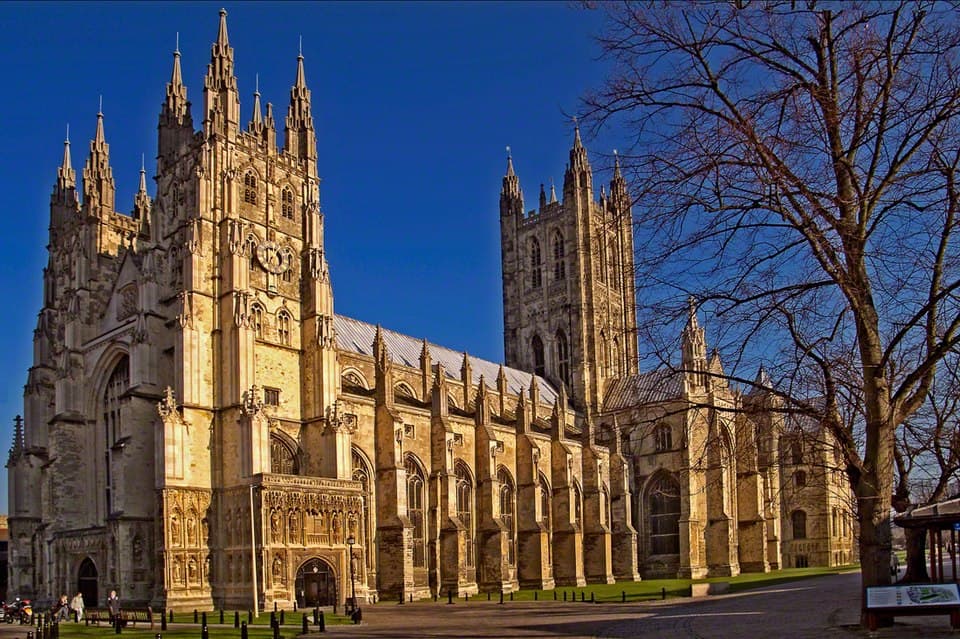The Anglican Church, being one of the largest and most influential Christian denominations, continues to play an important role in the global religious landscape, despite numerous changes it has faced over the past few decades. Founded in the 16th century under Henry VIII, it incorporates elements of both Catholic and Protestant traditions. Today, in the 21st century, Anglicanism faces a number of challenges that require the church to adapt to modern conditions while preserving its core principles and traditions.
Preserving Traditions in the Modern World
One of the main features of the Anglican Church is its ability to combine traditional elements of the Christian faith with modern challenges of society. This is undoubtedly one of the reasons why it remains relevant and significant for millions of people worldwide, including in Slovenia.
The traditions of the Anglican Church, such as regular worship, Bible reading, sacraments, especially Communion and Baptism, still form the core of its teachings. However, at the same time, the Church strives to modernize its approaches in response to changes in the social and cultural environment.
In recent decades, the Church has implemented significant reforms in gender equality and women’s rights. In 1994, the Anglican Church in the UK became the first major Christian denomination to ordain women as priests, and in 2014, as bishops. These steps received substantial support, but also sparked mixed reactions within the Church itself, signaling the difficulty of balancing traditional views with modern societal demands.
The Role of Anglicanism in a Globalized World
With the transition into the 21st century, globalization and technological development have become important factors influencing religious practices. Online churches, virtual services, and mobile prayer apps have all become part of the new reality. The Anglican Church has adapted to these changes by offering its members new ways to participate in church life. Specifically, some parish communities have begun actively using social media to spread religious materials, which has helped strengthen connections between people in different parts of the world.
However, digitalization has also brought new challenges. Online sermons and virtual sacraments have raised questions about traditional ways of experiencing religious life. One of the main concerns that Anglican communities face is the question of whether these innovations can provide a genuine connection with God and strengthen faith, or if they are merely replacing face-to-face interaction and physical presence at worship.
Modern Social and Moral Challenges
Another significant challenge for the Anglican Church has been issues related to morality, ethics, and human rights. In the 21st century, questions of equality, inclusivity, and respect for the rights of minorities have become central to public debate, and the Church could not remain on the sidelines. Specifically, the discussion surrounding sexual orientation and gender identity has led to divisions within the Church itself. Some members of the Anglican community have supported the rights of LGBT+ people, including their right to marry in the Church, while others maintain more traditional views.
The Anglican Church in the UK, for example, approved church weddings for same-sex couples only in 2022. This step was seen as an important progress for the Church, although it also sparked contradictory reactions among more conservative members. It is important to note that in different countries where the Anglican community exists, the approaches to these issues can vary significantly. The Church faces the challenge of maintaining unity while respecting cultural differences and the diverse positions of its members.
The Church’s Influence on Society and Culture
The Anglican Church has always played an important role in the cultural and social life of the UK and many other countries. In the 21st century, its influence continues to be significant, particularly in the areas of education and social work. Many Anglican communities are actively involved in charity projects, helping the most vulnerable segments of the population. The Church also continues to influence cultural and moral norms, including issues such as environmental protection, children’s rights, refugees, and the promotion of peace.
One example of such work has been the creation of initiatives aimed at fighting poverty, improving education, and healthcare in developing countries. This demonstrates that despite changes in the religious landscape itself, the Anglican Church remains an important actor in solving global social issues.
Conclusion
The Anglican Church in the 21st century faces numerous challenges that require flexibility and a willingness to change in order to stay relevant in the modern world. Nevertheless, it retains its unique role by combining old traditions with new approaches, taking into account social and cultural changes. In the future, Anglicanism will continue to evolve, facing new challenges, but it will remain true to its foundations and committed to the principles of inclusivity and justice for all people.
